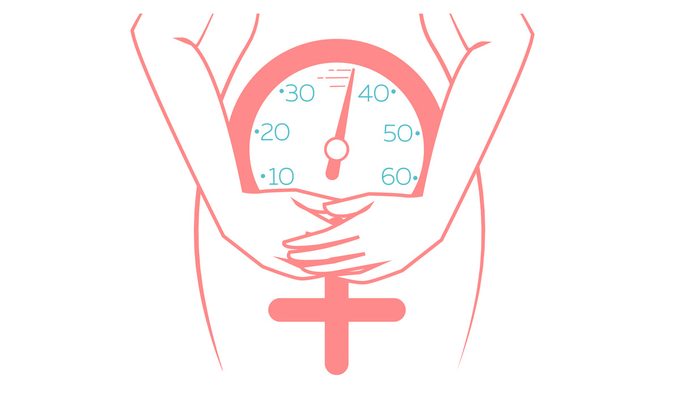What Women Need to Stop Believing About Their Hormonal Health
Holistic nutritionist Jessica Dixon on the shocking misconceptions about women’s health, and how that led her to switch careers.

After years of working in the restaurant industry–a notoriously fast-paced environment–Jessica Dixon was tired, stressed out and her health was suffering. “I could no longer work 12 hour shifts, eat late night meals, drink too much and sleep irregular hours,” she says. “I had to make a change to better my health.”
That wake up call (or #BHmoment as we like to call it) came when she was diagnosed with a hormone imbalance. “My hormone health had taken a huge toll; I had irregular periods, adrenal fatigue, extreme endometriosis pain, and when I collapsed one day at work, this was when I decided to make a huge lifestyle change,” says Dixon. “I looked to my diet, changed my job and began stress management tactics like yoga and meditation.”
Feeling much better, Dixon says she was inspired to enroll in Holistic Nutrition studies through The Canadian School of Natural Nutrition and has been helping women understand and restore their hormone health ever since through her website jessicadixon.ca. Here she chats with us about the most shocking misconceptions around hormone health, her wellness philosophy and why adaptogens are attracting so much attention. Think your hormones might be out of control? Here’s how to deal.

Since becoming a registered holistic nutritionist, what’s become your overall healthy living philosophy?
I believe we must learn to listen to our bodies. I like to take a holistic approach with whole foods, supporting digestion, the elimination pathways, endocrine system, with a focus on stress reduction.
As women we have this wonderful window in to our health through our menstrual cycle, I want to increase understanding and appreciation of our bodies and restore feminine vitality, not pushing for perfection, but aiming for balance in our everyday.
You specialize in women’s health and hormonal health – what do you find are the most shocking misconceptions or surprising facts about hormonal health?
That cramps are a “normal” part of being a women.
That women can get pregnant at any time of the month.
That we have 28-day cycles and all ovulate on day 14.
That we should be disgusted by our vaginas, nervous to look at them, smell them and so on. They are an extremely important part of us, just like our mouths, we should be concerned with what products we are putting in or near them and educated on the completely healthy hormonal symptoms during our cycles. I could talk all day about cervical fluid but maybe another time for that. (Wondering what’s up down there? Don’t miss 13 things your vagina wants to tell you.)
What’s a typical breakfast or snack for you?
Lately I have been loving coconut yogurt, papaya and homemade turmeric granola I make. Also, a quick 7-minute egg is always great on the go, with a sprinkle of salt and sesame.
Plus a beverage of sorts, either turmeric latte or coffee alternative, hot or cold, with a mix of adaptogens, collagen and coconut milk blended up.
What exactly are adaptogens and how did you become interested in developing blends?
Adaptogens are a class of plants that help your body adapt to stress. Working to support the nervous, endocrine and immune systems to protect and help the body cope with the effects of physical, chemical, biological and psychological stress. They are generally non-toxic, in small doses, non-specific, meaning they are capable of raising or lowering activity of certain bodily systems, like an internal thermostat, and they have a normalizing effect, helping the body achieve balance during periods of need. (Swap your usual coffee for this energizing adaptogen blend.)
Some plants are defined as adaptogens, others are probable adaptogens; bottom line is these tonic herbs have been used for thousands of years in Chinese and Ayurveda medicine to promote well being, but were more recently defined as Adaptogens in the early 20th century.
I wanted to create my own blends to suit different needs, during different periods of stress. The blends are easy to prep ahead of time and a ½ tsp. daily can be simply added to a smoothie, elixir or bowl. Powdered blends are a great way to add these stress busters into our everyday recipes. Learn more about why adaptogens are attracting major hype in the wellness world.
Dixon was kind enough to develop a custom adaptogen blend for Best Health readers! Find the recipe for her ‘Hormone Helper’ here.




